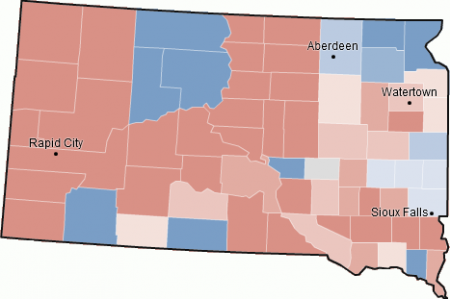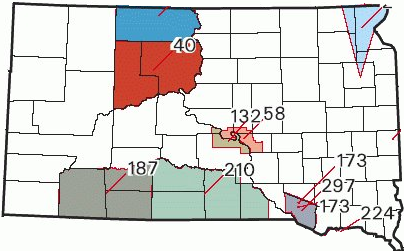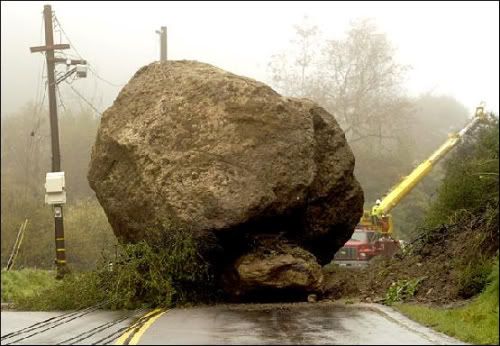Crossposted from Border Jumpers, Danielle Nierenberg and Bernard Pollack.
 Full disclosure: We had never heard of the Republic of Mauritius until the day we bought a ticket to go there.
Full disclosure: We had never heard of the Republic of Mauritius until the day we bought a ticket to go there.
Our pathetic excuse: Lonely Planet doesn’t list it in their Africa book.
When we arrived people seemed shocked to meet two people from the United States – hotel clerks, cab drivers, and street vendors who’ve worked on the island for years said they never met Americans before.
Yet, this is clearly America’s loss because sitting in the middle of the Indian ocean is one of the most incredible islands we’ve ever visited.
We always try to reduce our carbon footprint by traveling via public buses, but in this case a boat didn’t seem like a good option and flights from Johannesburg were extremely cheap. We resisted the urge to splurge on an all-inclusive beach holiday and opted for the more budget hostel pay-as-you-go experience.We had only four days and wanted to make the most of them and interacting with people seemed more interesting than lounging forever on a beach.
 While English is the official language, few people spoke it. Bernie’s upbringing in Montreal came in handy as we interacted with people using French. Our cab driver from the airport to Grand Bay, Shivan, told us how safe the country was and how people co-exist harmoniously, “we are different colors, with different cultures, but we live together peacefully here. People are all the same, and we all treat each other that way.” The more we interacted with locals, the more people echoed the same sentiments. The traditional foods we ate reflected this multi-ethnicity melting pot, blending Indian, Creole, Chinese and European influences.
While English is the official language, few people spoke it. Bernie’s upbringing in Montreal came in handy as we interacted with people using French. Our cab driver from the airport to Grand Bay, Shivan, told us how safe the country was and how people co-exist harmoniously, “we are different colors, with different cultures, but we live together peacefully here. People are all the same, and we all treat each other that way.” The more we interacted with locals, the more people echoed the same sentiments. The traditional foods we ate reflected this multi-ethnicity melting pot, blending Indian, Creole, Chinese and European influences.
“It’s not like most places in Africa,” another cab driver told us. “You can walk anywhere at night. You can leave your stuff unattended. We don’t have much crime here, people will help you – not bother you – and its very rare that they will steal anything from you.”
We asked another local named Richard why he thought it was so safe and he told me that the government took care of it’s people. “Everyone gets a good pension, no matter how long or where you worked; all people get access to health care and free education; and if you’re too poor to own a house then the government builds one for you with electricity for free (and after paying basic rent for seven years, you own it).”
 Another person we asked, named Marie, said that Mauritius lacked the government corruption of most African countries, citing it as the reason people visit there over nearby islands such as Madagascar and Comoros. “We have a real democracy,” she said.
Another person we asked, named Marie, said that Mauritius lacked the government corruption of most African countries, citing it as the reason people visit there over nearby islands such as Madagascar and Comoros. “We have a real democracy,” she said.
In Mauritius, the government is elected on a five-year basis. The last general elections took place on July 3, 2005 in all the 20 mainland constituencies, as well as the constituency covering the island of Rodrigues.
The British left the country after they attained independence in 1968, and became a republic in 1992. According to the 2009 Ibrahim Index of African Governance, which measures governance using a number of different variables, Mauritius’ government earned the highest rank among African nations for “participation and human rights” and “sustainable economic opportunity”, as well as earning the highest score in the index overall. Mauritius came second in “rule of law”, and fourth in terms of “human development” (source: Wikipedia).
Our hostel (Grand Bay Beach Residence), booked via Student Flights (affiliated with Liberty travel in the United States), was terrific value. It is located in short walking distance from the town of Grand Bay and the ocean. The price was around thirty dollars per night, but considering the fact that free 3G WiFi worked on the outdoor deck and taking into account the hours we spent uploading video files and talking on conference calls to the United States on Skype – we got lots of unexpected value. Things like restaurants and tourist destinations are very expensive on the island, but buying groceries and having drinks in the hotel room before heading out dancing allows budget travelers to enjoy everything without a hefty toll on your wallet. All the beaches everywhere in the country are public for both locals and tourists and that was something we enjoyed taking advantage of.
 We drove across the Island learning more about the country’s agriculture, which, next to tourism, is their biggest source of income. Sugar cane is the largest export, and the plots of land growing them stretched for miles. We were told that this crop accounted for a quarter of all exports from the country. We also saw lots of pineapple and coffee being grown.
We drove across the Island learning more about the country’s agriculture, which, next to tourism, is their biggest source of income. Sugar cane is the largest export, and the plots of land growing them stretched for miles. We were told that this crop accounted for a quarter of all exports from the country. We also saw lots of pineapple and coffee being grown.
Yet, an industry that surprised us was the booming hi-tech sector. We certainly didn’t expect coast-to-coast wireless internet (3G) when we arrived (it covers 60 percent of the island and is cheap and widely assessable).
We also played tourists and visited Triolet Shivala, the biggest Hindu temple of the island. The temple is dedicated to the Gods Shiva, Krishna, Vishna, Muruga, Brahma and Ganesha. This place is also the longest village on the island.
We also saw the “Coloured Earths of Chamarel,” among the oddest sites of the island. There are seven-coloured dunes at Chamarel, the result from the weathering of volcanic rocks. And a short drive away, we relaxed, eating spicy pineapple near the breathtaking Chamarel waterfalls. And we admit, we visited the beaches there as well.
As we boarded the plane, we looked at each other, and said we hoped to visit this magical island again.
Thank you for reading! If you enjoy our diary every day we invite you to get involved:
1. Comment on our daily posts — we check for comments everyday and want to have a regular ongoing discussion with you.
2. Receive regular updates–Join the weekly BorderJumpers newsletter by clicking here.
3. Help keep our research going–If you know of any great projects or contacts in West Africa please connect us connect us by emailing, commenting or sending us a message on facebook.
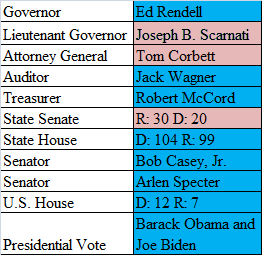
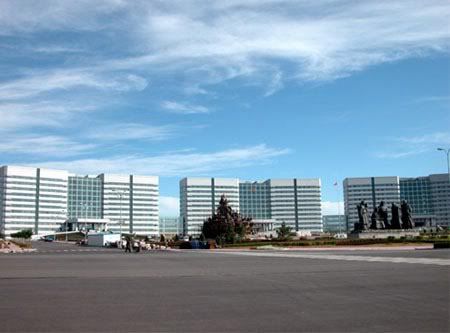

 The highways in southern Africa are filled with trucks carrying food aid across the continent. In the past, much of the maize, rice, soy, and other foods loaded onto these trucks came not from African farmers, but from the United States. And while these shipments provided much needed calories to people in need, they also disrupted national and local markets by lowering prices for locally grown food.
The highways in southern Africa are filled with trucks carrying food aid across the continent. In the past, much of the maize, rice, soy, and other foods loaded onto these trucks came not from African farmers, but from the United States. And while these shipments provided much needed calories to people in need, they also disrupted national and local markets by lowering prices for locally grown food.
